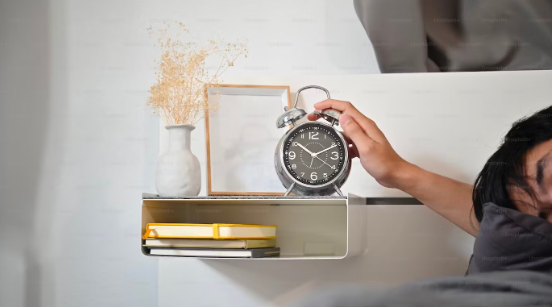World Sleep Day: How Good Beds Help Good Sleep

Author: Jonathan Warren
This Friday March 13th is World Sleep Day. The aim of the day is to promote the importance of getting enough proper sleep, and is sponsored by the World Association of Sleep Medicine. The event also raises awareness of sleep disorders, and how not getting proper sleep can affect your health. So, in celebration of this coming Friday, we've created this blog post to create awareness of some of the sleep disorders people are experiencing out there, and how a good bed can improve your sleep.
Sleep disorders
Sleep disorders can range from snoring, having nightmares or talking in your sleep, right through to sleep apnoea and insomnia.
Insomnia
Insomnia is probably one of the more common sleep disorders, and is something most people will have experienced at some point. It can affect your ability to fall asleep, as well as stay asleep once you get there. It can vary between the odd episode when you have something on your mind, for example an important meeting or exam, to bouts that can last up to three months and over.
Sleep apnoea
Sleep apnoea affects the way you breathe during sleep, sometimes causing people to stop breathing momentarily. This can be caused by either something in your brain affecting your breathing, or the muscles in the back of your throat. This disorder can have quite a few negative impacts on your health. It can lead to high blood pressure (hypertension), drowsiness during the day, and heart problems – not to mention the disturbance of your sleep.
Snoring
Believe it or not, in certain circumstances, snoring can be a big problem. Not only can it be annoying for anyone trying to sleep nearby, in some cases it can be a symptom of sleep apnea - although they are not always directly linked.
Restless leg syndrome
This is another type of sleep disorder that may be familiar. It affects the nervous system, making it difficult to feel comfortable. People with restless leg syndrome might feel the need to move their legs quite often, and sometimes experience an uncomfortable sensation in their legs. When fairly mild, the condition is usually managed by making a few lifestyle changes.
The right mattress
Choosing the right mattress is the start of helping to ensure a great night's sleep. If you tend to wake up feeling achy, or find yourself tossing and turning trying to get comfortable at night, then it might just be time to invest in a new one. If you're planning on buying a new bed, make sure you test a few out - what's comfortable to someone else might not necessarily be the same for you.
Finding the right bed also applies to your duvet and pillows, not just your mattress. Having the right tog and material can help when it comes to getting to sleep, as having a duvet that's too hot or heavy may only hinder your rest.
Your pillow should also be the right height, softness and material too. The best way to find the right one is to test a few out to find what works best for you.
Sources
http://sleepfoundation.org/bedroom/touch.php
http://sleepfoundation.org/sleep-disorders-problems
http://sleepfoundation.org/sleep-disorders-problems/insomnia
http://sleepfoundation.org/sleep-disorders-problems/sleep-apnea
http://www.sleepeducation.com/essentials-in-sleep/snoring/overview-and-facts
http://www.nhs.uk/conditions/Restless-leg-syndrome/Pages/Introduction.aspx



